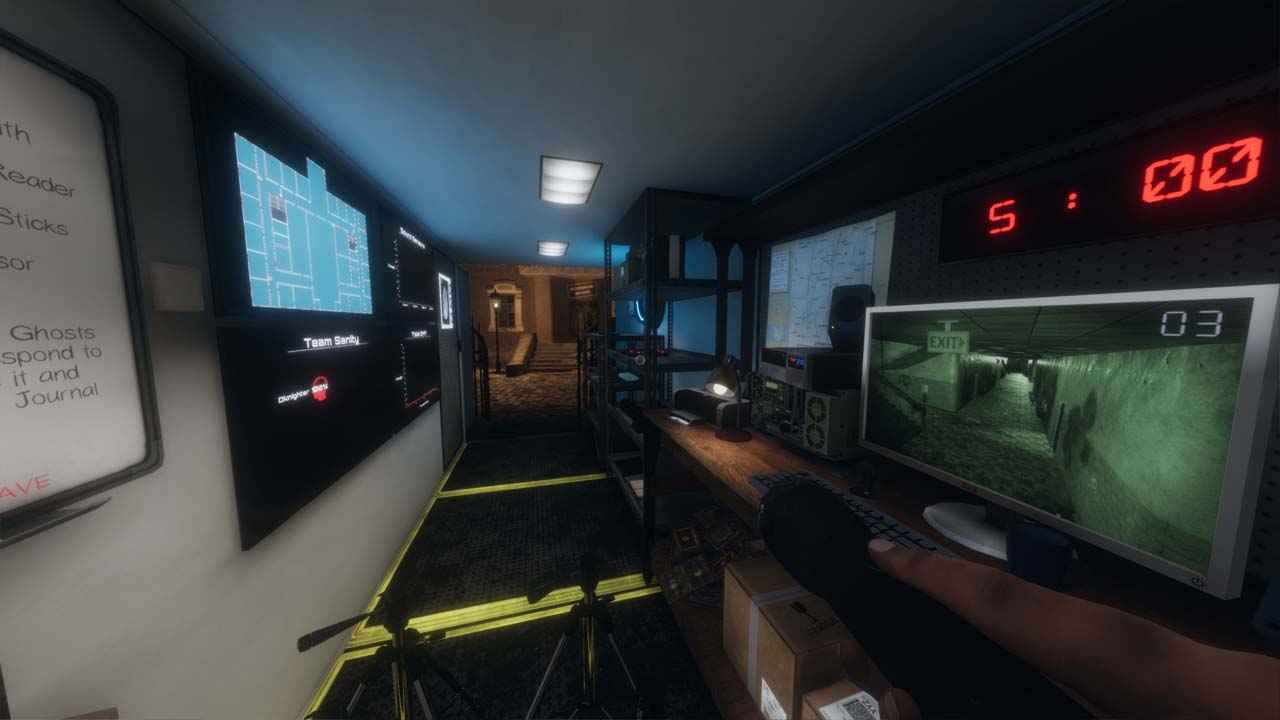Family conflicts are like turbulent storms that can tear relationships apart. But what if there was a way to navigate these tempestuous waters and foster harmony within your family?
Enter conflict resolution skills and negotiation techniques – the secret to transforming heated arguments into peaceful resolutions. By learning to recognize patterns, control responses, and find common ground, you can mend the fractures within your family unit.
In this guide, we explore therapy techniques, engaging activities, and helpful worksheets that will allow you to build effective communication and conflict resolution skills. Brace yourself for a journey towards a more harmonious and connected family life.
Longstanding Patterns
Family conflicts often arise due to long-standing patterns that have been established within the family dynamic. These patterns can involve certain communication styles, power dynamics, or unresolved issues that continually resurface.
In order to promote conflict resolution skills and negotiation in your family, it is important to first recognize and address these patterns. By identifying the underlying causes of conflicts, you can work towards finding more constructive ways to navigate disagreements and promote healthier interactions.
Positive Interactions
One effective way to promote conflict resolution skills in your family is by focusing on positive interactions. By consciously controlling our responses during conflicts, we can contribute to more positive outcomes.
This involves actively listening to each other, expressing empathy, and seeking understanding. When conflicts arise, it can be helpful to take a step back and consider how your response can contribute to a more positive interaction.
By creating an environment that values respect and understanding, you can foster an atmosphere where conflicts can be resolved in a healthier manner.
Asking Questions And Finding Common Ground
A different approach to conflicts involves asking questions and finding common ground.
Instead of engaging in arguments or trying to prove a point, focus on understanding the other person’s perspective. By asking open-ended questions and actively listening to their responses, you can gain insight into their needs and concerns.
Look for areas of common ground where compromises can be made or solutions can be found. This shift in approach can help to de-escalate conflicts and facilitate more productive conversations.
Resolving Conflicts, Not Winning Arguments
One important mindset shift in promoting conflict resolution skills and negotiation in your family is to prioritize resolving conflicts over winning arguments. This means shifting the focus from trying to prove oneself right to seeking mutually beneficial solutions.
Instead of getting caught up in a win-lose mentality, prioritize cooperation and compromise. By adopting a problem-solving approach, conflicts can be transformed into opportunities for growth and understanding within the family.
Altering Tone And Direction
Recognizing “choice points” in conversations is crucial for promoting conflict resolution skills and negotiation in your family. These are moments where you have the opportunity to alter the tone and direction of a conversation.
By becoming aware of these choice points, you can choose to respond in a more constructive and calm manner. This can help to de-escalate conflicts and create an environment where open dialogue and negotiation can take place.
Anticipating And Preparing Alternative Responses
In order to effectively navigate family conflicts, it can be helpful to anticipate conflicts and prepare alternative responses. By recognizing common triggers or patterns that lead to conflicts, you can proactively prepare yourself with alternative ways to respond.
This can involve practicing active listening skills, taking deep breaths to stay calm, or reframing the conflict as a problem to solve rather than an argument to win. By having these alternative responses ready, you can approach conflicts in a more constructive and productive manner.
Conflict Resolution And Listening Skills
Learning conflict resolution and listening skills is essential for promoting healthy family dynamics. These skills enable family members to effectively express their needs and concerns while also actively listening to others.
Conflict resolution skills involve techniques such as active listening, empathy, and compromise. By cultivating these skills within the family, you can create an environment where conflicts are addressed and resolved in a constructive way, promoting harmony and understanding.
Therapy For Understanding Dynamics And Improving Communication
Sometimes, it can be beneficial to seek therapy to better understand family dynamics and improve communication. Family therapy can provide a safe space for all family members to express their thoughts and emotions.
A therapist can help identify underlying issues and provide guidance on how to improve communication and resolve conflicts. Therapy sessions can include strategies such as building connection, using “I” statements to express feelings, and speaking directly to the therapist.
This professional support can greatly enhance conflict resolution skills and negotiation within the family.
Strategies For Family Counseling
In family counseling sessions, several strategies can be employed to promote conflict resolution skills and negotiation.
These strategies include building connection between family members, using “I” statements to express thoughts and emotions, and speaking directly to the therapist to address conflicts. Through these strategies, family members can understand each other’s perspectives and work towards resolving conflicts in a more effective and constructive manner.
Activities And Worksheets For Family Therapy
Activities and worksheets can be valuable tools in family therapy sessions. These activities can aid in recognizing family narratives, defining meaning and purpose, identifying what is working within the family, and meeting family needs.
By engaging in these activities, family members can gain insights into their own motivations and behaviors and explore ways to reframe conflicts as problems to solve. These resources can serve as practical tools to promote conflict resolution skills and negotiation within the family.
Engaging In Play
Engaging in play can be an effective way to promote conflict resolution skills and negotiation in the family. Allocating special time for each child, showing gratitude and appreciation, and participating in activities such as board games or physical and quiet activities can create opportunities for family members to practice cooperation, compromise, and problem-solving.
Playful interactions can help reduce tension and promote bonding, fostering an environment where conflicts can be addressed and resolved more effectively.
Special Time And Gratitude
Allocating special time for each family member and expressing gratitude and appreciation are important practices for fostering healthy family dynamics.
By dedicating quality time to each individual, you are showing that their needs and interests are valued. Expressing gratitude and appreciation for each family member’s contributions can create a positive atmosphere where conflicts are less likely to escalate.
These practices help to strengthen relationships and promote conflict resolution skills and negotiation within the family.
PositivePsychology.com Resources
PositivePsychology.com offers valuable resources for understanding needs and feelings within the family.
Their tools and worksheets can assist in exploring individual and family dynamics, addressing conflicts, and developing effective communication strategies. These resources can provide further guidance and support in promoting conflict resolution skills and negotiation in your family.
Sharing Values
Sharing values with your family members can help to prevent conflicts from arising in the first place. By openly discussing and aligning on core values, you can establish a common ground that helps guide decision-making and resolves potential conflicts before they occur.
Sharing values promotes understanding and respect within the family, laying the foundation for effective conflict resolution and negotiation.
School And Family Dynamics
It is important to recognize that the dynamics within the school environment can impact family dynamics.
Stressors or conflicts experienced at school can carry over into family interactions. By acknowledging these factors, family members can better understand and support one another.
By promoting open communication and empathy, family members can work together to navigate external challenges and strengthen their internal family dynamics.
Learning Conflict Resolution Skills And Improving Communication
Learning conflict resolution skills and improving communication within the family is crucial for fostering positive relationships.
By actively seeking opportunities to develop these skills, family members can enhance their ability to resolve conflicts and negotiate effectively. It is important to recognize that conflict is a natural part of any relationship, but by continuously learning and growing together, families can create a supportive and harmonious environment.
Creating A Family Environment
Creating a family environment that reduces friction and repairs rifts is essential for promoting conflict resolution skills and negotiation. This involves creating a space where open communication is encouraged, conflicts are addressed promptly and constructively, and forgiveness is practiced.
A supportive and nurturing family environment can foster trust and vulnerability, allowing for more effective conflict resolution and negotiation.
Practicing And Awareness
Practicing conflict resolution skills and increasing awareness of one’s own communication style is crucial for promoting healthy family dynamics.
Communication is a learned skill that can be improved with practice and self-reflection. By being conscious of one’s tone, body language, and choice of words, family members can avoid unintentionally escalating conflicts and promote more productive conversations.
Strengthening Internal Structures
Family members can learn skills to strengthen the internal structures within the family, which promote conflict resolution and negotiation. This can involve developing effective coping mechanisms, building resilience, and fostering self-awareness.
By addressing individual needs and building a strong foundation, family members will be better equipped to navigate conflicts and resolve them in a healthy and productive manner.
Tools And Worksheets For Conflict Management And Resolution
Utilizing tools and worksheets specifically designed for conflict management and resolution can be highly beneficial for families.
These resources provide practical frameworks and strategies to remove avoidable conflicts, manage conflicts when they arise, and ultimately resolve conflicts in a constructive manner. By engaging in these tools and worksheets, families can enhance their conflict resolution skills, leading to improved communication and harmonious relationships within the family.

